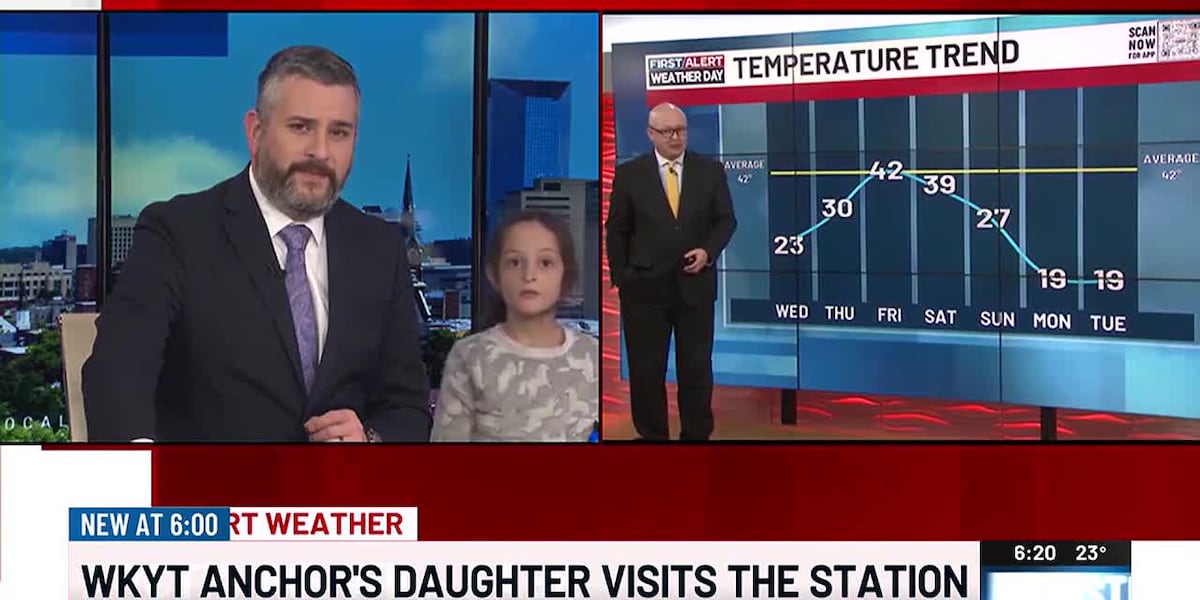Business
Yellen Urges China to Step Up Climate Finance Investments

The Biden administration called on China on Saturday to do more to help developing countries combat climate change, urging the world’s largest emitter of greenhouse gases to back international climate finance funds that it has so far declined to support.
Treasury Secretary Janet L. Yellen delivered the message during her second day of meetings in Beijing, where she is seeking to cultivate areas of cooperation between the United States and China. While China has expressed support for programs to help poor countries cope with the effects of climate change, it has resisted paying into such funds, arguing that it is also a developing nation.
Ms. Yellen said that China, like the United States, has a responsibility to be a climate finance leader.
“Climate finance should be targeted efficiently and effectively,” Ms. Yellen said during a meeting with a group of Chinese and international sustainable finance experts on Saturday morning. “I believe that if China were to support existing multilateral climate institutions like the Green Climate Fund and the Climate Investment Funds alongside us and other donor governments, we could have a greater impact than we do today.”
The United States and China are both facing pressure from developing countries to mobilize more money for such countries struggling to shut down coal plants, develop renewable energy, or cope with the consequences of climate change by building things like sea walls, improving drainage or developing early warning systems for floods and cyclones.
Under President Barack Obama, the United States pledged $3 billion over four years to the Green Climate Fund, a United Nations-led program aimed at helping poor countries. So far it has delivered $2 billion of that pledge. Republicans have sought several times to block taxpayer spending for the fund and other climate finance, but President Biden has used discretionary spending within the State Department to fulfill part of the U.S. pledge.
China pledged $3.1 billion, and it has delivered about 10 percent of that, according to studies. It also gives money to developing nations through what its leaders call “South-South” cooperation. That’s because under the United Nations climate body, China is still considered a developing country and not an industrialized nation, although China now has a far larger manufacturing sector than any other country. It has long resisted pressure to contribute to the same climate funds as wealthy nations, arguing that advanced economies like the United States have been polluting far longer and have more responsibility to help tackle climate change.
“It is not the obligation of China to provide financial support” under the U.N. climate rules, Xie Zhenhua, China’s climate envoy, said in an interview last year after the creation of a new multilateral fund to help poor countries address economic losses from climate disasters.
John Morton, a former climate counselor for the Treasury Department under the Biden administration, said any meaningful contribution by China could help the United States make the case to members of Congress and others to approve climate finance. He also said there may be other ways the two superpowers could work together to help developing nations slash coal use or curb methane, a potent greenhouse gas that leaks from oil and gas wells.
“That would be hugely consequential for the world,” he said. “Any time there’s an opportunity to forge a closer relationship with China on climate, it is an opportunity that should be taken up immediately.”
The U.S. and China are joint leaders of the Sustainable Finance Working Group at the Group of 20, providing the two countries an opportunity to work more closely on global climate matters.
Ms. Yellen is the second Biden administration cabinet member to travel to China in recent weeks; Secretary of State Antony J. Blinken was there in June. Later in July, John Kerry, President Biden’s special envoy for climate change, will visit to restart global warming negotiations between the world’s two largest polluters.
Additionally, President Biden will attend a forum in London on Tuesday aimed at finding ways of mobilizing climate finance, in particular “bringing private finance off the sidelines, for clean energy deployment and adaptation in developing countries,” Jake Sullivan, the White House national security adviser, said on Friday.
During her four-day trip to China, Ms. Yellen has been looking to reopen the channels of communication with her counterparts in Beijing after years of growing distrust that have been amplified by trade wars and export controls for sensitive technology. In meetings this week, Ms. Yellen criticized China’s treatment of foreign businesses but also made the case that more frequent conversations between top officials would help prevent policy misunderstandings from festering.
The Treasury secretary also discussed climate finance in a meeting with Premier Li Qiang on Friday in Beijing. On Saturday afternoon she is scheduled to meet with Vice Premier He Lifeng, her counterpart who oversees China’s economy.
In the past two years, China has been building more coal-fired power plants and expanding coal mines, prompting concern in Washington.
Chinese officials have said they plan to phase out carbon emissions completely by 2060, starting no later than 2030. And China has led the world in installing solar power, and in exporting solar panels to other countries.
China is doubling down on coal consumption partly for national security reasons — it does not want to rely more heavily on imported oil and natural gas, which might be cut off during a crisis.
China’s power experts say that the new coal-fired power plants will be used mainly during peaks in electricity demand, not around the clock. But critics say that once built, the plants will inevitably damage the climate over the long term.

Business
Albania Gives Jared Kushner Hotel Project a Nod as Trump Returns

The government of Albania has given preliminary approval to a plan proposed by Jared Kushner, Donald J. Trump’s son-in-law, to build a $1.4 billion luxury hotel complex on a small abandoned military base off the coast of Albania.
The project is one of several involving Mr. Trump and his extended family that directly involve foreign government entities that will be moving ahead even while Mr. Trump will be in charge of foreign policy related to these same nations.
The approval by Albania’s Strategic Investment Committee — which is led by Prime Minister Edi Rama — gives Mr. Kushner and his business partners the right to move ahead with accelerated negotiations to build the luxury resort on a 111-acre section of the 2.2-square-mile island of Sazan that will be connected by ferry to the mainland.
Mr. Kushner and the Albanian government did not respond Wednesday to requests for comment. But when previously asked about this project, both have said that the evaluation is not being influenced by Mr. Kushner’s ties to Mr. Trump or any effort to try to seek favors from the U.S. government.
“The fact that such a renowned American entrepreneur shows his interest on investing in Albania makes us very proud and happy,” a spokesman for Mr. Rama said last year in a statement to The New York Times when asked about the projects.
Mr. Kushner’s Affinity Partners, a private equity company backed with about $4.6 billion in money mostly from Saudi Arabia and other Middle East sovereign wealth funds, is pursuing the Albania project along with Asher Abehsera, a real-estate executive that Mr. Kushner has previously teamed up with to build projects in Brooklyn, N.Y.
The Albanian government, according to an official document recently posted online, will now work with their American partners to clear the proposed hotel site of any potential buried munitions and to examine any other environmental or legal concerns that need to be resolved before the project can move ahead.
The document, dated Dec. 30, notes that the government “has the right to revoke the decision,” depending on the final project negotiations.
Mr. Kushner’s firm has said the plan is to build a five-star “eco-resort community” on the island by turning a “former military base into a vibrant international destination for hospitality and wellness.”
Ivanka Trump, Mr. Trump’s daughter, has said she is helping with the project as well. “We will execute on it,” she said about the project, during a podcast last year.
This project is just one of two major real-estate deals that Mr. Kushner is pursuing along with Mr. Abehsera that involve foreign governments.
Separately, the partnership received preliminary approval last year to build a luxury hotel complex in Belgrade, Serbia, in the former ministry of defense building, which has sat empty for decades after it was bombed by NATO in 1999 during a war there.
Serbia and Albania have foreign policy matters pending with the United States, as both countries seek continued U.S. support for their long-stalled efforts to join the European Union, and officials in Washington are trying to convince Serbia to tighten ties with the United States, instead of Russia.
Virginia Canter, who served as White House ethics lawyer during the Obama and Clinton administrations and also an ethics adviser to the International Monetary Fund, said even if there was no attempt to gain influence with Mr. Trump, any government deal involving his family creates that impression.
“It all looks like favoritism, like they are providing access to Kushner because they want to be on the good side of Trump,” Ms. Canter said, now with State Democracy Defenders Fund, a group that tracks federal government corruption and ethics issues.
Business
Craft supplies retailer Joann declares bankruptcy for the second time in a year

The craft supplies and fabric retailer Joann filed for bankruptcy for the second time in less than a year, as the chain wrestles with declining sales and inventory shortages, the company said Wednesday.
The retailer emerged from a previous Chapter 11 bankruptcy process last April after eliminating $505 million in debt. Now, with $615 million in liabilities, the company will begin a court-supervised sale of its assets to repay creditors. The company owes an additional $133 million to its suppliers.
“We hope that this process enables us to find a path that would allow Joann to continue operating,” said interim Chief Executive Michael Prendergast in a statement. “The last several years have presented significant and lasting challenges in the retail environment, which, coupled with our current financial position and constrained inventory levels, forced us to take this step.”
Joann’s more than 800 stores and websites will remain open throughout the bankruptcy process, the company said, and employees will continue to receive pay and benefits. The Hudson, Ohio-based company was founded in 1943 and has stores in 49 states, including several in Southern California.
According to court documents, Joann began receiving unpredictable and inconsistent deliveries of yarn and sewing items from its suppliers, making it difficult to keep its shelves stocked. Joann’s suppliers also discontinued certain items the retailer relied on.
Along with the “unanticipated inventory challenges,” Joann and other retailers face pressure from inflation-wary consumers and interest rates that were for a time the highest in decades. The crafts supplier has also been hindered by competition from others in the space, including Michael’s, Etsy and Hobby Lobby, said Retail Wire Chief Executive Dominick Miserandino.
“It did not necessarily learn to evolve like its nearby competitors,” Miserandino said of Joann. “Not many people have heard of Joann in the way they’ve heard of Michael’s.”
Joann is not the first retailer to continue to struggle after going through bankruptcy. The party supply chain Party City announced last month it would be shutting down operations, after filing for and emerging from Chapter 11 bankruptcy in 2023.
Over the last two years, more than 60 companies have filed for bankruptcy for a second or third time, Bloomberg reported, based on information from BankruptcyData. That’s the most over a comparable period since 2020, when the COVID-19 pandemic kept shoppers home.
Discount chain Big Lots filed for bankruptcy last September, and the Container Store, a retailer offering storage and organization products, declared bankruptcy last month. Companies that rely heavily on brick-and-mortar locations are scrambling to keep up with online retailers and big-box chains. Fast-casual restaurants such as Red Lobster and Rubio’s Coastal Grill have also struggled.
High prices have prompted consumers to pull back on discretionary spending, while rising operating and labor costs put additional pressure on businesses, experts said. The U.S. annual inflation rate for 2024 was 2.9%, down from 3.4% in 2023. But inflation has been on the rise since September and remains above the Federal Reserve’s goal of 2%.
If a sale process for Joann is approved, Gordon Brothers Retail Partners would serve as the stalking-horse bidder and set the floor for the auction.
Business
U.S. Sues Southwest Airlines Over Chronic Delays

The federal government sued Southwest Airlines on Wednesday, accusing the airline of harming passengers who flew on two routes that were plagued by consistent delays in 2022.
In a lawsuit, the Transportation Department said it was seeking more than $2.1 million in civil penalties over the flights between airports in Chicago and Oakland, Calif., as well as Baltimore and Cleveland, that were chronically delayed over five months that year.
“Airlines have a legal obligation to ensure that their flight schedules provide travelers with realistic departure and arrival times,” the transportation secretary, Pete Buttigieg, said in a statement. “Today’s action sends a message to all airlines that the department is prepared to go to court in order to enforce passenger protections.”
Carriers are barred from operating unrealistic flight schedules, which the Transportation Department considers an unfair, deceptive and anticompetitive practice. A “chronically delayed” flight is defined as one that operates at least 10 times a month and is late by at least 30 minutes more than half the time.
In a statement, Southwest said it was “disappointed” that the department chose to sue over the flights that took place more than two years ago. The airline said it had operated 20 million flights since the Transportation Department enacted its policy against chronically delayed flights more than a decade ago, with no other violations.
“Any claim that these two flights represent an unrealistic schedule is simply not credible when compared with our performance over the past 15 years,” Southwest said.
Last year, Southwest canceled fewer than 1 percent of its flights, but more than 22 percent arrived at least 15 minutes later than scheduled, according to Cirium, an aviation data provider. Delta Air Lines, United Airlines, Alaska Airlines and American Airlines all had fewer such delays.
The lawsuit was filed in the United States District Court for the Northern District of California. In it, the government said that a Southwest flight from Chicago to Oakland arrived late 19 out of 25 trips in April 2022, with delays averaging more than an hour. The consistent delays continued through August of that year, averaging an hour or more. On another flight, between Baltimore and Cleveland, average delay times reached as high as 96 minutes per month during the same period. In a statement, the department said that Southwest, rather than poor weather or air traffic control, was responsible for more than 90 percent of the delays.
“Holding out these chronically delayed flights disregarded consumers’ need to have reliable information about the real arrival time of a flight and harmed thousands of passengers traveling on these Southwest flights by causing disruptions to travel plans or other plans,” the department said in the lawsuit.
The government said Southwest had violated federal rules 58 times in August 2022 after four months of consistent delays. Each violation faces a civil penalty of up to $37,377, or more than $2.1 million in total, according to the lawsuit.
The Transportation Department on Wednesday also said that it had penalized Frontier Airlines for chronically delayed flights, fining the airline $650,000. Half that amount was paid to the Treasury and the rest is slated to be forgiven if the airline has no more chronically delayed flights over the next three years.
This month, the department ordered JetBlue Airways to pay a $2 million fine for failing to address similarly delayed flights over a span of more than a year ending in November 2023, with half the money going to passengers affected by the delays.
-
/cdn.vox-cdn.com/uploads/chorus_asset/file/25822586/STK169_ZUCKERBERG_MAGA_STKS491_CVIRGINIA_A.jpg)
/cdn.vox-cdn.com/uploads/chorus_asset/file/25822586/STK169_ZUCKERBERG_MAGA_STKS491_CVIRGINIA_A.jpg) Technology7 days ago
Technology7 days agoMeta is highlighting a splintering global approach to online speech
-

 Science5 days ago
Science5 days agoMetro will offer free rides in L.A. through Sunday due to fires
-
/cdn.vox-cdn.com/uploads/chorus_asset/file/25821992/videoframe_720397.png)
/cdn.vox-cdn.com/uploads/chorus_asset/file/25821992/videoframe_720397.png) Technology1 week ago
Technology1 week agoLas Vegas police release ChatGPT logs from the suspect in the Cybertruck explosion
-

 Movie Reviews1 week ago
Movie Reviews1 week ago‘How to Make Millions Before Grandma Dies’ Review: Thai Oscar Entry Is a Disarmingly Sentimental Tear-Jerker
-

 Health1 week ago
Health1 week agoMichael J. Fox honored with Presidential Medal of Freedom for Parkinson’s research efforts
-

 Movie Reviews1 week ago
Movie Reviews1 week agoMovie Review: Millennials try to buy-in or opt-out of the “American Meltdown”
-

 News1 week ago
News1 week agoPhotos: Pacific Palisades Wildfire Engulfs Homes in an L.A. Neighborhood
-

 World1 week ago
World1 week agoTrial Starts for Nicolas Sarkozy in Libya Election Case














